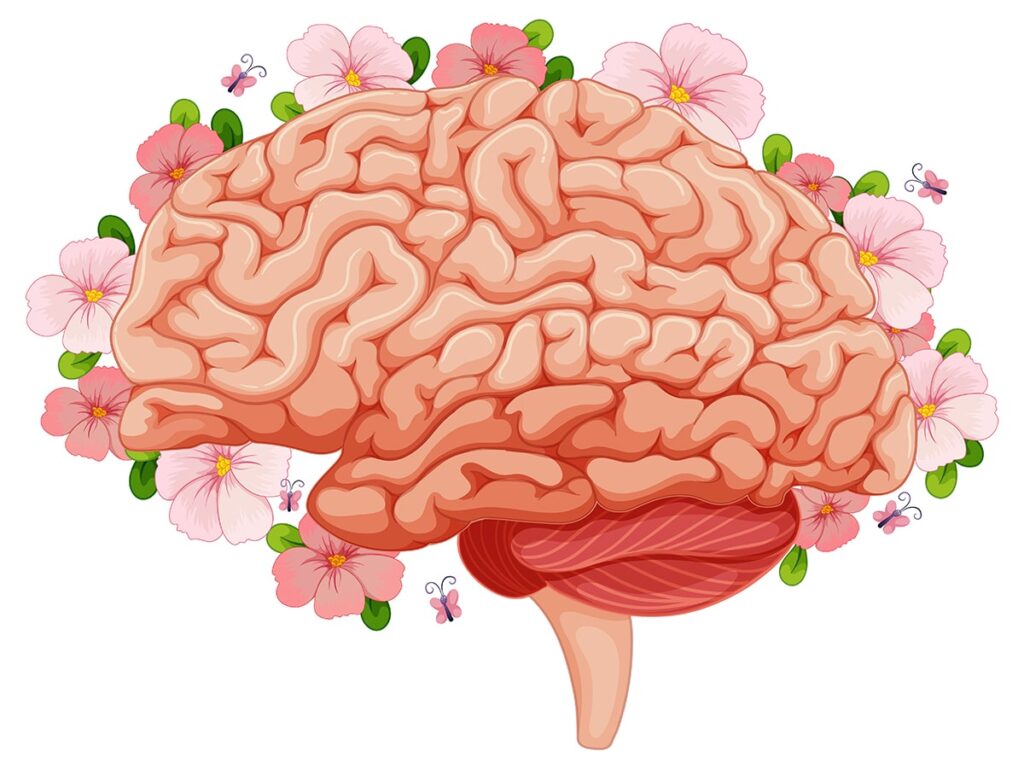- Fear of heights: All humans can cross a 1 m long and 30 cm wide board on the floor, but only very few can do it at a height of 20 meters
- Less: Memories are recreated every time we think about them. This also means creating false memories – things that never happened – in another person
- Multitasking: Humans can’t multitask. You can only do one thing at a time. However, we are good at switching quickly between different activities, so we think we are doing several things at once – but in reality, in practice, we can only do one thing at a time. The only exception to this rule are physical tasks that we do very often and are therefore very good at; here we can simultaneously perform a mental task. An example of this would be walking and talking at the same time
- Goals: If you tell others about your goals, you are less likely to achieve them because you lose motivation
- Phobias: In the world of psychology, there are more than 400 recognized phobias. Quirky examples include hippopotomonstrosesquippedaliphobia (the fear of long words) and phobophobia (the fear of phobias)
- Favorite song: Your favorite song is probably your favorite because you associate it with an emotional event in your life
- Truman syndrome: Truman syndrome is a condition where patients believe they are living in a reality show (like in the 1998 movie “The Truman Show”)
- Money: Spending money on other people brings more happiness than spending money on yourself
- Phantom vibrations: 68% of people experience their cell phone vibrating even when it doesn’t – a phenomenon known as “Phantom Vibration” among psychologists
- Short-term memory: Humans can only remember 3-4 things for 20 seconds at a time. A good example is a phone number such as 28 41 17 59. You need to repeat the four components of the phone number to remember it
The reptilian brain: “Can I eat it? Can I mate with it? Will it kill me?”

Have you ever noticed that people always move very slowly past an accident? Or that people flock for free samples? Did you know that traffic accidents increase dramatically on roads with advertisements featuring women in their underwear? This is all down to one thing: our reptilian brain. This part of the brain was the first we evolved and is tasked with controlling three basic drives: food, reproduction and danger. So wherever we are, the reptilian brain scans our surroundings to answer the following questions: “Can I eat it? Can I mate with it? Will it kill me?”. This means you can’t help but notice food, sex and danger
The Paris Syndrome

Paris syndrome is a type of depression disorder that affects 10 to 20 Japanese – typically female – tourists in Paris every year. The disorder causes various psychological symptoms such as hallucinations, persecutory delusions, etc. as well as psychosomatic symptoms such as dizziness, sweating, etc. The cause of the disorder is a form of extreme culture shock; many Japanese tourists have extremely high expectations of Paris, as well as highly romanticized and unrealistic notions of the city, which all come crashing down when they experience it in reality
We overestimate our future emotions

We overestimate our emotional reactions in the future. Whether we imagine a negative (e.g. divorce, death in the family, etc.) or positive (e.g. becoming a parent, winning the lottery, etc.) event in the future, we can’t help but overestimate the future emotion (the negative events we think will trigger deep sadness, while the positive ones will trigger extreme joy). In reality, we tend to be more or less equally happy all the time
More facts from the world of psychology
- music: The type of music you listen to affects the way you perceive the world
- Daydreaming: Our thoughts “fly” on average 30% of the time
- Awkward silence: It takes about 4 seconds for silence to feel awkward
- Remembering:It’s easier to remember things with your eyes closed
- Smile: You can improve your mood by smiling
- Weight: Antisocial or unpopular girls are 70% more likely to gain weight than popular, social girls





